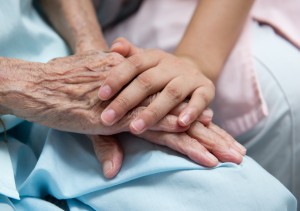-
TUESDAY Q & A: Palliative care focuses on providing relief from symptoms, pain and stress of serious illness
DEAR MAYO CLINIC: My husband was diagnosed with cancer six months ago and just completed chemotherapy treatments. He’s not feeling great right now, and he may need more cancer treatments at some point. But we’ve been told his long-term outlook is good. At a recent appointment, though, his oncologist suggested he consider palliative care. Why would he need that? Isn’t it similar to hospice care?
ANSWER: Palliative care and hospice care are different. Hospice is both an insurance benefit and a philosophy that focuses on enhancing quality of life for patients who likely have less than six months to live. The goal of hospice is to help people live as well as they can for as long as they can.
Palliative care, on the other hand, is specialized medical care for people with serious illnesses. This type of care is focused on providing relief from the symptoms, pain and stress of a serious illness, whatever the diagnosis or outlook.
Palliative care and hospice care do share some of the same principles. The aim of both is to make people feel better overall. For example, palliative care doctors have expertise in relieving the symptoms of a serious illness, such as pain, fatigue, nausea, vomiting, constipation, sleep problems and depression.
Palliative care also goes beyond just medical concerns. It takes into account a person’s emotional and spiritual well-being. In many cases it includes family members and other loved ones as well, providing services to the entire family and helping everyone involved better cope with the disease.
When you engage in palliative care, it does not limit other care in any way, nor does it take the place of therapies used to treat or cure disease. Palliative care is appropriate at any age and at any stage in a serious illness. It can be provided together with curative treatment. Palliative care is focused on easing the burden of the disease, as well as any potential side effects that may come from the treatments for that disease.
Palliative care can be very useful for people who are dealing with a terminal illness from a number of perspectives: physical, spiritual and psychological. However, palliative care also can be valuable for those whose medical conditions are serious, but who are not facing end-of-life issues.
Research has found that people who get palliative care soon after diagnosis of a serious illness experience lower rates of depression and anxiety. They also have an overall improved quality of life. In addition, there is evidence that some patients with a serious illness who seek palliative care soon after diagnosis may live longer than people who do not.
Teamwork is an important part of palliative care. Depending on the situation, palliative care professionals can come from a wide range of medical specialties, including internal medicine, physical medicine and rehabilitation, geriatrics, and oncology, among others.
It is important to note, though, that palliative care professionals become part of a patient’s health care team. They do not replace anyone. That means if you and your husband decide to explore palliative care, the doctors and other health care professionals who work with you on palliative care will not take the place of his oncologist, his surgeon or any of his other established care team members. Instead, the palliative care experts will work with those providers to offer a coordinated approach to your husband’s health care.
Consider discussing palliative care with your husband’s oncologist. He or she can give you more information about the specific services offered through your health care organization and provide details on what would be involved. Palliative care could help your husband — and you — feel better, and could be a valuable part of his ongoing treatment plan. — Jacob Strand, M.D., Palliative Care Clinic, Mayo Clinic, Rochester, Minn.
Related Articles








